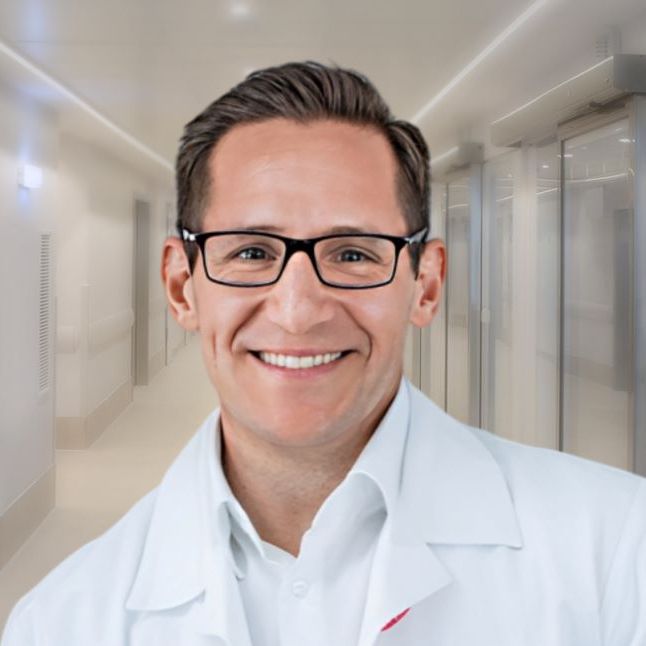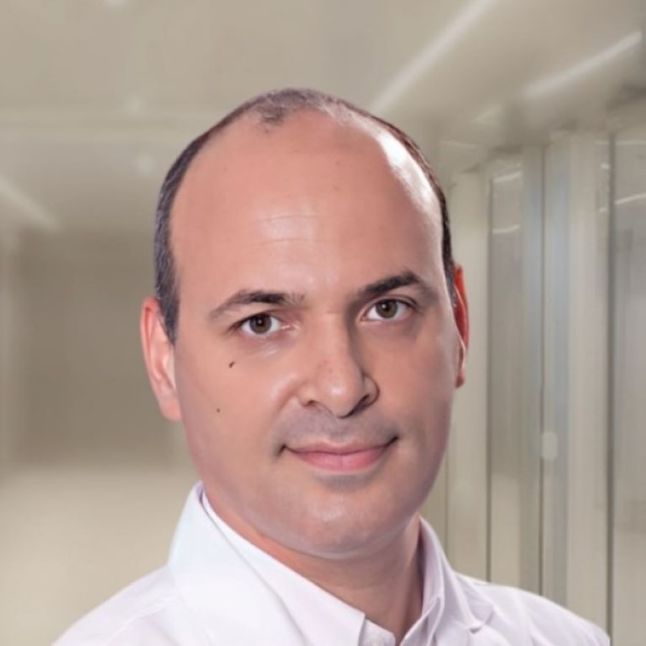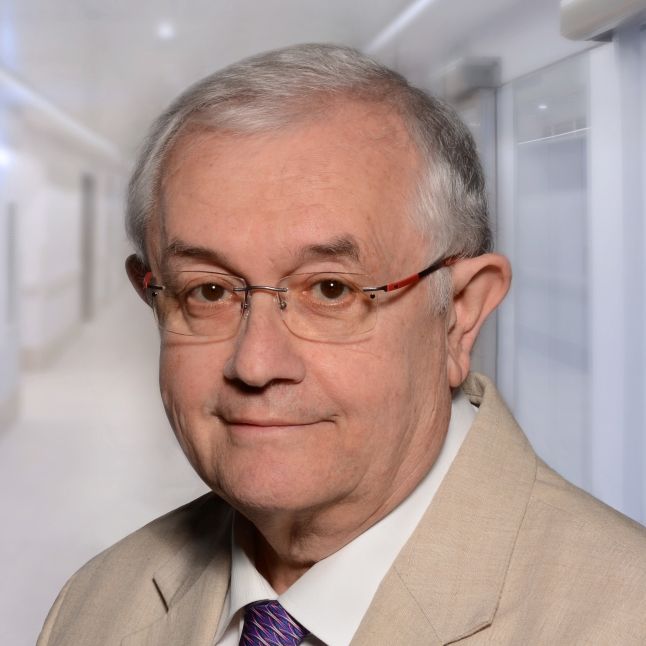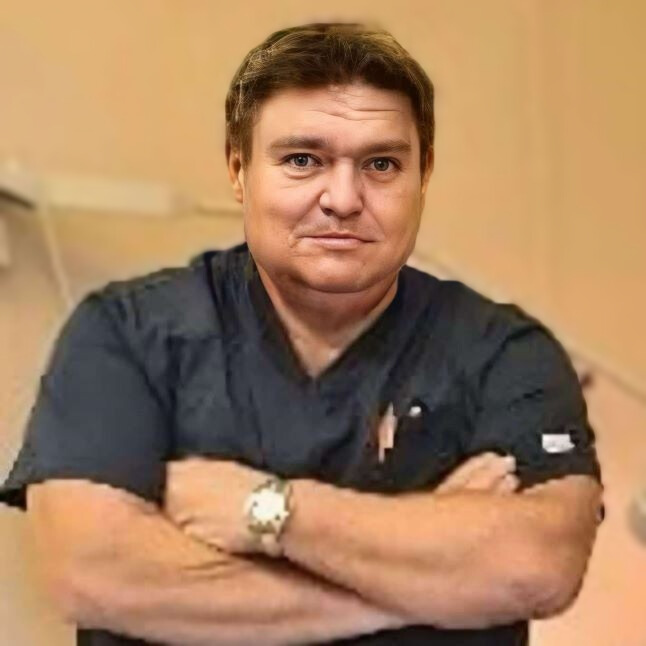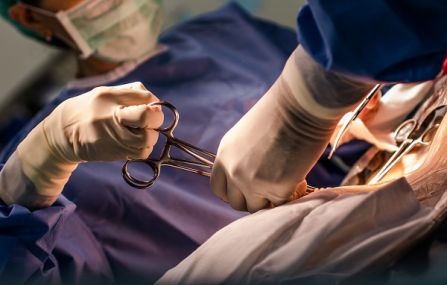 Gynecology is the medical practice dealing with the health of the female reproductive system and its diseases, as well as their treatment. Certain gynecological problems can only be treated surgically. Gynecological surgeries are always preceded by a medical examination by a specialist, and if justified, further laboratory and imaging procedures. Regular gynecological screening is essential for diagnosing often symptomless changes. The early recognition of these gynecological problems is an important condition for effective treatment.
Gynecology is the medical practice dealing with the health of the female reproductive system and its diseases, as well as their treatment. Certain gynecological problems can only be treated surgically. Gynecological surgeries are always preceded by a medical examination by a specialist, and if justified, further laboratory and imaging procedures. Regular gynecological screening is essential for diagnosing often symptomless changes. The early recognition of these gynecological problems is an important condition for effective treatment.
Gynecological surgeries - depending on the type of problem - can be performed in different surgical ways. Thus, we can talk about laparoscopic surgeries, during which therapeutic interventions are performed in the abdominal cavity, hysteroscopic interventions , i.e. hysteroscopy, during which we enter the uterine cavity through the vagina, and a situation may also arise when open abdominal surgeries need to be performed. You can read in detail about these surgical methods by clicking here .
Types of surgery:
Pelvic organ prolapse, vaginal prolapse laparoscopic reconstruction - Promontofixation
In women over 40, it's not uncommon to experience urinary or bowel incontinence, pain during sex, a feeling of a foreign body in the vagina, or recurrent urinary tract infections. These symptoms may be caused by the prolapse of the pelvic organs, the bladder, the uterus, or the rectum through the vagina. The underlying problem is that the pelvic floor that supports and holds the organs can weaken over time, and overweight, pregnancy, vaginal birth, chronic coughing, a lot of lifting, or jumping sports can also exacerbate the weakening of the pelvic tissues.
What causes the symptoms?
As a result of the weakening, the organs can sink, slide into each other, and the prolapse of the uterus and vagina can occur. Pelvic floor prolapse most often occurs concurrently with incontinence. In mild cases, this means involuntary dribbling of urine when sneezing or laughing, while in more severe cases, urine may leak even with small movements. Defecation can also be problematic as the stool may become stuck in the rectum that protrudes into the vagina. Due to the involvement of the vagina, sexual intercourse can cause pain, a feeling of fullness, a foreign body sensation can occur when standing, and in the most severe cases, the cervix may appear in the pubic area, or the uterus may prolapse out of the vagina.
In case of the above problems, a diagnosis should be sought from a gynecologist specialist, who, based on the symptoms, also examines the situation from the urology side. This problem lies at the boundary of these two specialties.
The restoration of the position of the pelvic organs is made possible by fixation with a mesh implantation. The aim of the surgery is to restore the original anatomical position. By suspending the anterior and, if necessary, the posterior wall of the vagina, the above symptoms and complaints can likely be eliminated.
During the surgery, the restoration of pelvic organ prolapse (prolapse) is performed under anesthesia by laparoscopic implantation of a tissue-friendly, non-absorbable mesh. Depending on the type of prolapse, one or two meshes are implanted. In the case of anterior vaginal wall prolapse, an anterior mesh is stitched to the vaginal wall. If there is also a posterior wall prolapse and it causes significant discomfort, or if its development can be expected, we also supplement the operation with the implantation of a posterior mesh.
The mesh(es) are placed outside the abdominal cavity, covered by the peritoneum, to avoid direct contact with the intestines and the consequential adhesions that result from this.
After the operation, a 6-week recovery phase follows with rest and relief. After the due control at this time, the doctor can determine the patient's further load capacity. The operation very rarely has complications, and the patient can live her usual life without unpleasant symptoms.
Adhesions (Adhaesiolysis intraabdominalis)
Adhesions refer to fibrous attachments that can occur in the abdomen and pelvis and pathologically fix the affected tissues and organs to each other. Adhesions can form between the loops of bowel and
- the abdominal wall or
- surrounding organs (liver, gallbladder, uterus, fallopian tube, ovary, bladder), or
- other loops of bowel.
The diagnosis and treatment of the lesion are very important, as it is a common cause of unpleasant complaints. Abdominal pain, bowel stricture, intestinal obstruction, and even infertility can develop as a result of adhesions.
What can cause adhesions?
The cause of adhesions is most often a previous abdominal or gynecological surgery, as well as a cesarean section. Over time, adhesions can become increasingly severe due to the shortening of connective tissues. It is not uncommon for symptoms to occur a long time – even a few years – after the intervention. It is important to emphasize that adhesions are known accompaniments of surgeries and not the result of incorrect surgical technique. This is the body's natural response to opening the abdomen, exposing the tissues to air, and surgical manipulation.
Other causes of adhesion formation can be various inflammatory processes. Inflammation occurring in the abdominal cavity (e.g., peritonitis, appendicitis, gallbladder inflammation) or in the pelvis (endometriosis, inflammation of the uterus, fallopian tubes, ovaries due to infection) can result not only in adhesions but also in scarring and subsequent infertility.
Adhesions can also occur following bleeding into the abdominal cavity and radiation therapy used in cancer treatment.
What symptoms can occur as a result of adhesions?
Abdominal adhesions can be symptomless for a long time, but in many cases they can cause the following complaints:
- abdominal, pelvic pain
- bloating, constipation
- vomiting, dehydration
- infertility
It is important to note that adhesions affecting the intestines can even result in total intestinal obstruction, which is a serious, life-threatening condition that may be indicated by sudden, severe abdominal pain and severe vomiting. In the case of intestinal obstruction, immediate life-saving surgery is necessary for recovery.
The free movement of the intestines on each other is hindered as a result of adhesions. Thus, in some cases, intestinal torsion can also occur, which can disrupt the blood supply to the intestines, which can be life-threatening if it persists for a long time.
Diagnosis and treatment of adhesions
The sure diagnosis and treatment of adhesions is possible by means of a so-called laparoscopic surgery (laparoscopy). In cases with complaints, for which the underlying cause was not revealed by other imaging methods, diagnostic laparoscopy may be justified.
The surgery is performed under general or spinal anesthesia and due to the laparoscopic approach, it usually does not require a long hospital stay and recovery time.
During the operation, a camera and special laparoscopic tools are placed in the abdominal cavity through 3-4 small incisions. With the help of the camera, the extent of the adhesions can be clearly seen and their dissolution can be carried out with the help of special laparoscopic tools.
In addition, other existing conditions, such as endometriotic nodules, insufficiently permeable fallopian tubes, ovarian cysts can also be surgically resolved in one session. Surgical treatment of the found lesions can help relieve symptoms and solve infertility.
By releasing adhesions (adhaesiolysis), complaints are mitigated or cease in most cases. However, it is important to know that adhesions can recur within a few months or years after the surgery.
-
Adhesiolysis intra-abdominalFrom 856 000 Ft
-
Exploratory laparotomyFrom 1 157 000 Ft
-
Laparoscopic promontofixation, anteriorFrom 1 082 000 Ft
-
Laparoscopic promontofixation, front+backFrom 1 231 000 Ft
-
Para-aortic block dissectionFrom 1 527 000 Ft



